Prior to your Omnibus Hearing, your attorney may file motions asking for a Contested Omnibus Hearing. Some courts may call it a Motion Hearing, Evidentiary Hearing, or Rasmussen Hearing. Regardless of the moniker, the purpose of such a hearing is to challenge issues in your case prior to a trial taking place. If successful, this can lead to a dismissal of our case or charges within it. It can also trigger suppression of evidence in your case that can lead to better plea negotiations or give you better chances at trial.
One of the most common challenges at a Contested Omnibus Hearing is attacking probable cause. If there is no probable cause for the charge(s) against you, then it results in a dismissal. Probable cause basically means that there is a reasonable probability that you committed the crime. Both in Minnesota and at the federal level, courts will evaluate the facts of your case and the probability that you committed the alleged crime. If you do not challenge probable cause, then the court is virtually always going to find it and state that there is enough evidence for your case to proceed forward.
Another popular motion for a Contested Omnibus Hearing includes challenging search and seizure issues. If you want to challenge why the officer pulled your vehicle over in a DWI case or stopped you on the street, then this is the time to bring a motion. Also, if you believe that law enforcement illegally searched your person, car, or home, then you want to bring a motion challenging the sufficiency of the search under the Fourth Amendment. If you want to challenge the admissibility of statements or confessions, then making a motion for a Contested Omnibus Hearing to get that evidence excluded is something your attorney may do.
Upon challenging these evidentiary issues, the prosecutor will often bring the police officers involved in to testify at the hearing. Your attorney will also have the opportunity to cross examine the prosecution’s witnesses and present other evidence in support of your motion. Some judges will decide the motion at the hearing after hearing arguments from both sides, while other judges will take the matter under advisement and issue a ruling later after allowing both parties a chance to submit written legal arguments. If your judge decides the later method, then the court will notify your attorney when its decision is made with a written order.
Importantly, if you are unsuccessful with an evidentiary motion prior to trial, then this does not mean you have been found guilty or your case is over. The court will schedule another court date, such as a pre-trial hearing, settlement conference, or even trial date. If you do win any contested hearing issues you raised, then check with your attorney to see if that means any of your charges are dismissed or if you are just proceeding in the case on better footing.
